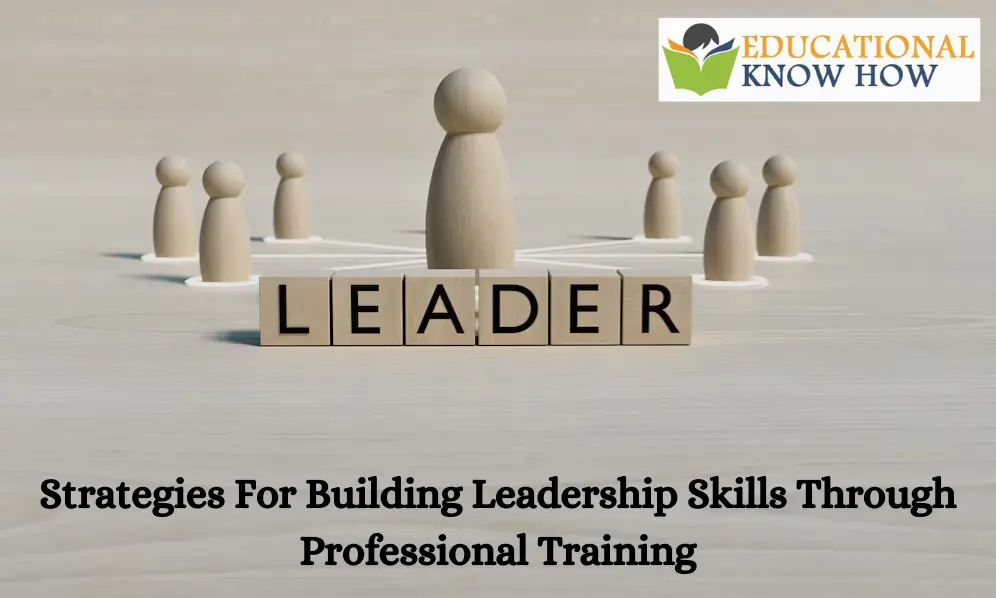
In today’s competitive business world, leadership skills are essential. The ability to manage people, projects, and resources effectively can make a considerable difference between a successful career and a mediocre one. Professional training is a great way to enhance your leadership skills and advance your career. Let’s explore some strategies for building leadership skills through professional training.
What is Professional Skills Training?
Professional skills training refers to the education and development programs designed to improve the soft skills required for success in the workplace. These programs typically focus on communication, leadership, teamwork, problem-solving, and time management skills.
Strategies For Building Leadership Skills Through Professional Training –
- Identify Your Leadership Goals
Before embarking on any professional training, it is essential to identify your leadership goals. Ask yourself, what specific leadership skills do you want to develop? Or if you are looking to improve your communication skills or your ability to lead a team. Once you have identified your goals, you can choose the appropriate training programs that align with your objectives.
- Choose the Right Training Program
There are various training programs available for developing leadership skills. You can attend conferences, seminars, and workshops or enroll in online courses. Choosing the right training program can be a time-consuming task. Look for programs relevant to your industry or profession and taught by experienced instructors.
- Practice What You Learn
Professional training is only effective if you apply what you learn in the workplace. After attending a training program, take the time to practice what you have learned. For instance, if you attend a communication skills training program, practice active listening and effective communication in the workplace.
- Get Feedback
Feedbacks are essential for professional development. After practicing what you have learned, seek feedback from your colleagues, supervisors, or mentors. Constructive feedback can help you identify areas for improvement and make adjustments accordingly.
- Network
Networking is an integral part of professional development. Attend seminars, conferences, and other industry events to meet other professionals and learn from them. Join professional associations and online groups to stay updated on industry trends and best practices.
- Lead by Example
Leadership skills are about telling people what to do and leading by example. Be a role model for your colleagues and team members. Demonstrate the leadership skills you have learned through your actions and behaviors.
- Continuous Learning
Learning is a continuous process; professional training is just the beginning. To develop your leadership skills further, commit to continuous learning. Read books, attend webinars, and tackle new challenges that will stretch your leadership abilities.
Conclusion
Professional skills training is an excellent way to build leadership skills and advance your career. It is a valuable investment for individuals seeking to enhance and improve their leadership abilities and careers. Professional skills training helps individuals develop essential soft skills such as communication, leadership, teamwork, problem-solving, and time management skills, which are crucial for success in today’s competitive business world.
Professional skills training is a crucial component of personal and professional development. Educational Know How provides a wealth of resources and information on professional skills training, making it easier for individuals to find the right programs and resources to enhance their skills and advance their careers. Through the articles and resources on Educational Know How, individuals can learn about various professional skills training programs, from leadership development to project management to communication skills. They can also access tips and advice on choosing the right training programs, applying what they have learned, and developing a growth mindset.
Educational Know How emphasizes the importance of continuous learning and development. It encourages individuals to make lifelong learning a habit and provides resources to help them stay updated on industry trends and best practices. Educational Know How is a valuable resource for individuals seeking professional skills training. By providing information, resources, and support, it empowers individuals to take control of their personal and professional development and achieve their full potential.
